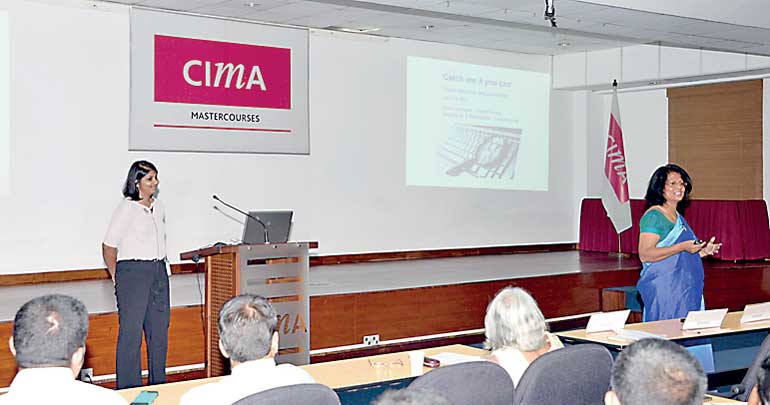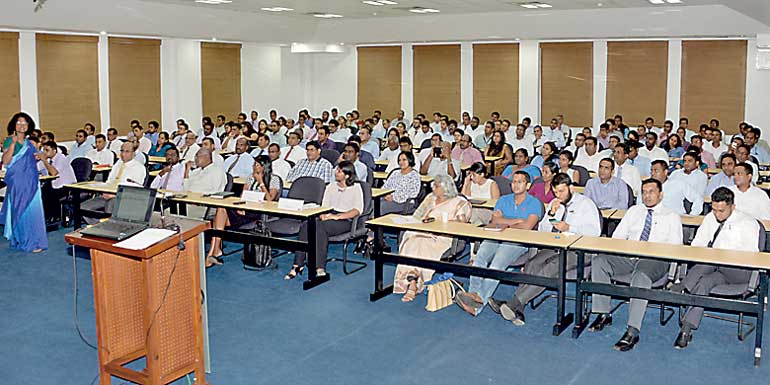Thursday Feb 19, 2026
Thursday Feb 19, 2026
Friday, 10 July 2015 00:00 - - {{hitsCtrl.values.hits}}

Ernst & Young Partner – Assurance Partner Averil Ludowyke and Ernst & Young Assistant Manager Dinusha De S Wijeyeratne speaking at the event

The participants of the workshop
Sri Lanka has low awareness of fraud detection and furthermore whistle-blower programs lack support at present. For example, according to a fraud survey conducted by Ernst & Young in 2015, only 8% of Sri Lankan employees believe they have a whistle-blowing hotline and 19% state their respective organisations would support whistle-blowers.
To address this issue, CIMA Mastercourses recently organised a workshop on fraud detection and prevention presented by Averil Ludowyke (Partner – Assurance, Ernst & Young) and Dinusha De S. Wijeyeratne (Assistant Manager, Ernst & Young).
In light of this, the speakers covered topics such as the current global fraud landscape where most cases are reported in the banking and financial services industry, government and public sectors and in the manufacturing industry. Tips are consistently and by far the most common detection method and over 40% of all cases were detected by a tip — more than twice the rate of any other detection method according to the Association of Certified Fraud Examiners ‘Report to the Nations’ 2014 global fraud study.
The workshop also enlightened the participants about the typical profiles of fraudsters, the risk factors which may lead to fraudulent practices occurring in organisations and behavioural ‘red flags’ of fraudsters. The different types of fraud – namely, corruption, asset misappropriation, financial statement fraud and cyber crime were discussed in depth using both local and global case studies.
With regard to fraud investigations, the speakers explained that in the South Asian region alone, 54.5% of fraud cases were detected by way of a tip-off according to the Association of Certified Fraud Examiners ‘Report to the Nations’ 2014 global fraud study.
As such, the importance of the management promoting ethical behaviour, the implementation of an anti-fraud framework, which includes a Code of Conduct and most importantly, whistle-blower programs which preserve confidentiality and provide protection to whisle-blowers together with transaction monitoring via data analytics among others were discussed as fraud combating measures.
Over 150 professionals from a diverse range of industries attended this workshop which was open to CIMA students and members, and the public.